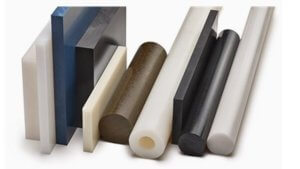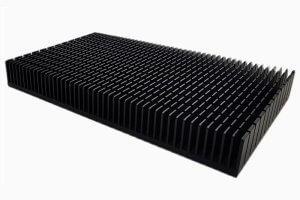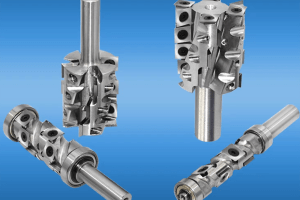Introduction to Polyester Materials in Engineering
Polyester materials play a crucial role in various engineering applications due to their versatility, durability, and resistance to many chemicals. As synthetic polymers, polyesters are formed through a chemical reaction known as polymerization, where ester groups are linked together to create long molecular chains. These materials exhibit important properties such as high tensile strength, dimensional stability, and the ability to withstand harsh environmental conditions, making them ideal for use in automotive components, electronic insulation, and construction materials. Given these attributes, polyesters have become essential in developing advanced engineering solutions.
Polyester’s Properties and Advantages in Engineering
Polyester stands out in the engineering sector owing to its impressive durability and strength, which enable it to withstand substantial stress and strain without compromising its structural integrity. This synthetic fabric is also renowned for its exceptional resistance to a variety of chemicals and weather conditions, such as prolonged exposure to sunlight and moisture that often degrade other materials. When compared with alternative engineering materials like cotton or wool, polyester is far more resilient against wear and tear, cementing its status as a preferred choice for applications where longevity is paramount. For instance, its robustness makes it an ideal candidate for high-performance composites used in automotive and aerospace components, where both material reliability and weight reduction are critical. Unlike natural fibers, polyester does not swell or shrink, maintaining dimensional stability even under challenging environmental circumstances.
Applications of Polyester Materials in Various Engineering Fields
Polyester materials have become pivotal across diverse engineering domains due to their versatility and superior properties. In the construction industry, they are widely used as geotextiles for soil stabilization, drainage facilitation, and erosion control, serving an integral part in reinforcing earth structures. Electrical engineers utilize polyester’s excellent dielectric properties for insulation in cables and electronic components, enhancing safety and reliability. Additionally, its significant role in automotive engineering is underscored by use in tire reinforcements where the material’s high tensile strength and durability contribute to improved performance and extended tire life. These applications demonstrate how essential polyester has become in complex modern engineering solutions.
Innovations and Developments in Polyester Technology
Recent advances in polyester production processes have significantly enhanced the efficiency and sustainability of this ubiquitous material. One notable innovation is the development of eco-friendly recyclable polyesters, which aim to reduce environmental impact by improving the lifecycle and disposability of products. For instance, engineers have introduced a groundbreaking approach to depolymerizing used polyester into its basic monomers, allowing for the creation of new polyester fibers with minimal degradation in quality. This chemical recycling process exemplifies a breakthrough in material application that not only conserves resources but also paves the way for a closed-loop textile economy.
Challenges and Considerations When Using Polyester Materials
In the engineering realm, a significant challenge associated with polyester materials is mitigating their environmental footprint since many forms of polyester are not readily recyclable. Addressing this concern requires innovative handling strategies to reduce long-term ecological damage. Engineers must also contend with the equilibrium between cost-effectiveness and performance needs; while polyester offers an affordable option for various applications, optimizing its quality and suitability for specific engineering demands without substantial expense necessitates careful material selection and design adaptation. For instance, integrating additives can improve durability or heat resistance but may increase costs and impact recyclability. These considerations illustrate the complexities in utilizing polyesters within engineering solutions where both economic and functional objectives must be satisfied.
Future Perspectives on Polyester in Engineering
The ongoing evolution of polyester materials is unveiling a horizon rich with potential for new applications across diverse engineering sectors. Fueled by research trends that aim to bolster mechanical properties, thermal stability, and environmental impact, polyesters are increasingly becoming the go-to material for innovative solutions. For instance, developments in biodegradable polyesters hold promise for eco-friendly packaging and agricultural films, reducing dependency on traditional plastics. In aerospace engineering, lightweight yet robust polyester composites could revolutionize product design, offering significant fuel savings without compromising safety or performance. Given these prospects, the market for engineered polyester materials can expect substantial growth as they adapt to meet the ever-increasing technical demands of modern industries.
Conclusion: The Role of Polyester in Engineering
Polyester materials have become indispensable in engineering due to their unique properties such as high tensile strength, durability, and chemical resistance. These polymers serve critical functions across multiple domains including automotive parts where they provide lightweight yet robust alternatives; in electronics as insulative films or substrates for flexible circuits; and within the construction industry through reinforcing structures with polyester-based composites. The adaptability of polyesters to blend with other fibers enhances material performance and fosters innovation in textile engineering, promoting advancements like moisture-wicking fabrics. Despite emerging novel materials, the enduring relevance of polyester is ensured by its ongoing development which promises enhanced sustainability and expanded applications that keep pace with evolving engineering demands.
Other Articles You Might Enjoy
- Polyester materials in aerospace
Introduction to Polyester in Aerospace Polyester is a category of polymers that primarily comprises compounds within the ester functional group. Its chemical composition often includes a mixture of organic units…
- CNC Machining: Understanding Materials, Processes and Techniques( rivets Nora)
When it comes to Computer Numerical Control (CNC) machining processes utilised in manufacturing industries worldwide, there’s an expansive range of materials, procedures and techniques that play a crucial role. These…
- Boosting CNC Machining Throughput: The Role of Composite Materials
Introduction to CNC Machining and Composite Materials CNC, or Computer Numerical Control machining, is a essential manufacturing process where programmed software controls the movement of factory machinery seamlessly. It can…








